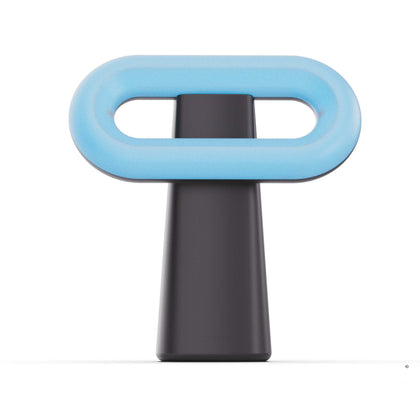
Five things you need to know about circadian rhythms
|
|
Time to read 2 min
The circadian rhythm is the bedrock of your wellbeing. But it's often overlooked. Here are five things you should know about your circadian rhythm.
1. The circadian rhythm regulates way more than just sleep
When you hear circadian rhythm, what's the first thing that comes to mind? For most people, it's their sleep-wake cycle.
And it's true. The circadian rhythm governs our sleep-wake cycle by regulating hormones like melatonin and cortisol. But that’s just one of its many jobs.
The circadian rhythm regulates over 60% of our bodily functions. That includes the immune1, cardiovascular and metabolic systems2. No wonder its proper function is vital to wellbeing.
2. It's your body's super resource management system
You might be thinking, 'what's the reason we have an internal clock running all these functions?'
Essentially, the circadian rhythm is our body's super resource management system. Our ancestors evolved in harsh conditions where food was difficult to acquire. They couldn't afford to waste energy. The circadian rhythm saves energy, which in turn, increases their chances of survival.
Let's use the metabolic system as an example. It would be inefficient to run the metabolic system at 100% capacity 24/7 if we only need to eat a couple of times a day. Instead, the circadian rhythm regulates our appetite, so we only feel hungry at certain regular times. During those times, it also ramps up our metabolism, preparing the body to process food.
Although you probably no longer hunt and gather our food, your circadian rhythm is still busy optimising your energy expenditure.
3. It's approximately (but not exactly) 24 hours
Each cell has its own little clock, which is kept in synchrony with your master clock—the suprachiasmatic nucleus (or SCN for short). Think of it as the conductor of an orchestra, making sure your body's different systems—your immune system, metabolism and sleep-wake cycle—work together harmoniously on a roughly 24-hour cycle.
The word circadian' comes from Latin. ‘Circa’ means cycle. ‘dian’ means day or approximately 24 hours. The truth is, the length of everyone's circadian rhythm is slightly different. And it changes throughout your life. The length of your circadian rhythm will influence your chronotype (whether you're a night owl or a morning bird.)
4. The circadian rhythm is regulated by light
Have you ever travelled internationally? The first few days, you probably felt jet lagged. But with each passing day, your body acclimatised to the new time zone. That's because your circadian rhythm uses light cues from the environment to shift its timing.
When exposed to particular wavelengths of light found in daylight, special receptors in our eyes signal to the SCN (the circadian rhythm's master clock.)
Daily exposure to light, in effect, winds our internal clock forwards or backwards to keep us in sync. It's this mechanism that prevents our circadian rhythm from slowly desynchronising from the day-night cycle, despite not being exactly 24-hours.
5. Most people's circadian rhythm is a little misaligned
If you work indoors and don't spend a couple of hours under natural light every day, then the chances are your circadian rhythm is misaligned. A paper published in 2016 estimates that 87% of people working a regular day job suffer a chronic form of circadian disruption known as social jet lag.3
Social jet lag can make you feel sluggish, worsen sleep quality, reduce immunity and encourage weight gain.
Thankfully you can reduce your risk of social jet lag by increasing your exposure to natural light.
References
- Scheiermann, C., Gibbs, J., Ince, L. & Loudon, A. Clocking in to immunity. Nat. Rev. Immunol. 18, 423–437 (2018).
- Scheer, F. A. J. L., Hilton, M. F., Mantzoros, C. S. & Shea, S. A. Adverse metabolic and cardiovascular consequences of circadian misalignment. Proc. Natl.
Acad. Sci. 106, 4453–4458 (2009).
- Roenneberg, T. & Merrow, M. The Circadian Clock and Human Health. Curr. Biol. 26, R432–R443 (2016).

